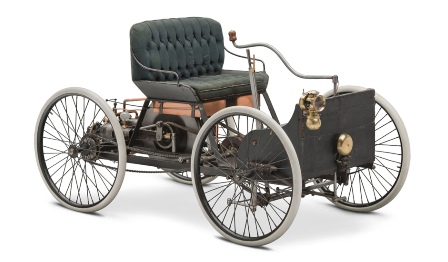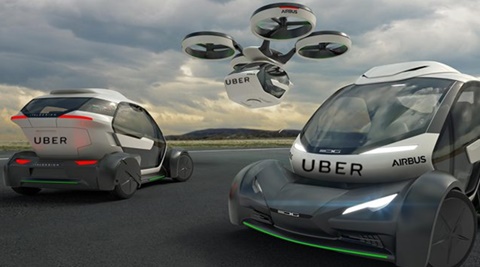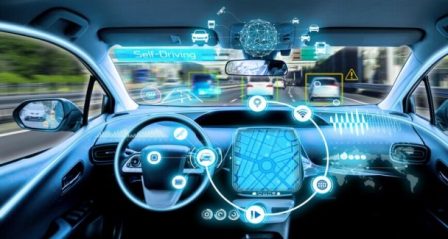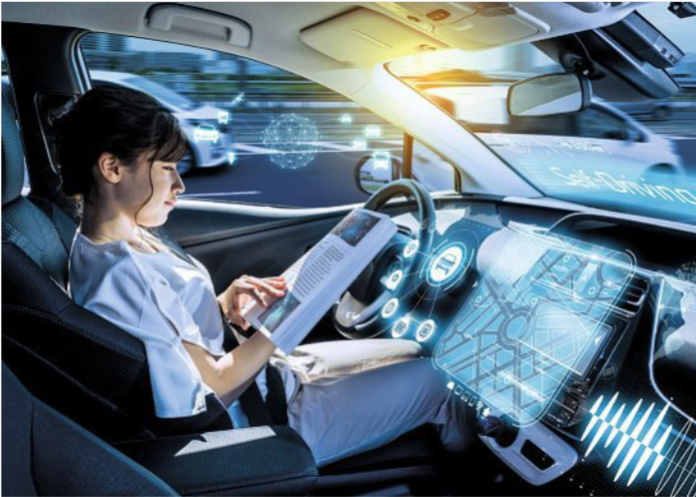By:ROTIMI ASHER
From the development of the crude Henry Ford’s Quadricycle, which had no reverse gear through vehicles with automatic transmission, later with auto pilot and now Electric Vehicles (EV), auto technology development has recorded incredible advancements.
Giving the speed and nature of the ongoing development, including the creeping in of artificial intelligence, one question that automotive technology watchers have been asking is: what would the future of automobile be like in the next ten years?

While the look and feel of our cars has changed in the past 100 years, the way we drive them hasn’t. But fundamental changes are coming. In the next decade, not only will there be total change in the way they are powered and wired, automotive technology would alter.
As at date, some cars already have basic automation features. But the automotive experiments being undertaken by the likes of Uber and Google make up a small proportion of the vehicles on our roads. By 2030, the standard car will evolve from merely assisting the driver to taking full control of all aspects of driving in most driving conditions.
This widespread automation, together with the electrification and increased connectivity of both the car and society, are set to shake up the car industry in a big way. This will affect everything from the way cars look and feel, to how we spend our time inside them and how they get us from point A to point B.
The first major difference we might notice between today’s cars and those of 2030 are their names. Just as Apple and Samsung have taken over a mobile phone market that Nokia and Blackberry once dominated, Tesla, Apple, Dyson, and Google could become the most recognized automotive brands of the future.
They will likely look a lot different too. From the outside, the large air intakes and front grills that cool our combustion engines will no longer be needed while wing mirrors will be replaced with cameras and sensors. Windows could be larger to allow liberated passengers to enjoy the view or near non-existent to provide privacy. The Mercedes-Benz Vision Urbanetic demonstrates these radical new looks with a modular vehicle that can switch bodies to either move cargo or people.

Car interiors will be much more flexible, some allowing customization of colour, light, privacy, and layout at the touch of a button. Volvo’s recent 360c concept car envisages a multi-functional space that can transform into a lounge, an office and even a bedroom.
Sun visors will become a thing of the past, with smart glass allowing us to control the amount of entering daylight. The Mercedes F015 doors even have extra screens that can function as windows or entertainment systems.
Many cars will be fitted with augmented-reality systems which will superimpose computer-generated visualizations on to the windscreen or other suitable display areas, to ease the passenger’s nerves from relinquishing the wheel by showing what the car is about to do.
Drivers will be able to communicate with their cars through speech or gesture commands. In high-end models, we may even see some early versions of brain-computer interfaces, which would associate patterns of brain activity with commands to control the car or entertain occupants. Similar technology has already been used to control prosthetic limbs and wheelchairs.
Connective technology
The ever-growing World Wide Web will become central to how our integrated cars move us around and communicate with the outside world. Sensors designed to recognize and communicate with upgraded road signs, markings, networks of cameras, pedestrians, and other vehicles will allow cars to synchronize their movement, minimizing fuel consumption and improving traffic flow.
Cars will also be able to help authorities maintain road infrastructure with tyre sensors that notify them of deteriorating road conditions.
When humans choose to take the wheel, technology will warn drivers about impending collisions with other road users, and attempt to avoid them. Improvements in thermal sensor technology are likely to enable cars to see far beyond the illumination range of car headlights. If sufficiently standardized and legislated for, these technologies should substantially reduce the number of road accidents probably after an initial spike.
Fuels of the future
Many countries and cities have announced upcoming bans on the sale of new petrol and diesel cars by 2030. Older vehicles will still be on the road, so petrol stations are unlikely to disappear by this date. However, carmakers are already focusing more and more on vehicles that will support the fuels of the future.
Fully electric vehicles only make up 2 per cent of the global market right now, but as their price drops below that of petrol cars by the mid-2020s, their market share will surely skyrocket. This will depend on how charging time can be improved and how much governments invest in electric charging networks.

We expect fully electric vehicles to at least be a viable choice for a wide range of drivers by 2030, but unforeseen groundbreaking technological developments could easily change the future of vehicle fuel. For instance, scientists are working hard to solve the production and storage difficulties that limit the potential of clean, fast-fuelling and long-range hydrogen-powered vehicles.
The year 2030 might not seem too far away but a decade is a long time for technology to change. The issue on the front burner for government and media now is climate change. Everything is going towards a green environment. So don’t be surprised if you look back at the cars of today in a decade’s time and wonder how we ever got by.





